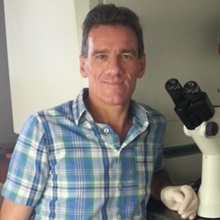The genetic causes of Prader-Willi syndrome (PWS) are known, including as a complex disorder involving imprinted genes that normally only function after inheritance from the father. A dozen genes contribute to the clinical problems in PWS, although what most of these genes do is poorly understood. Additionally, although numerous mouse models that mimic genetic components have been established, none of these display the equivalent overeating and obesity of PWS. Consequently, the underlying basis of clinical problems in PWS is elusive and few therapies are available (other than growth hormone). Overcoming the strong drive to overeat and obesity with negative impacts on life expectancy and life quality is of upmost and crucial importance for PWS individuals and families. One potential novel therapeutic approach to consider does not depend on a full understanding of the genetic and clinical basis of PWS. This is based on the concept that as a result of the loss of function of the genes inherited from the father, individuals with PWS have one or two copies of the PWS-chromosome region of maternal-origin. However, when of maternal origin, the PWS-chromosome domain is cloaked by a chemical modification of DNA and its surrounding proteins, termed DNA methylation and repressive histone modifications, and thus the maternal chromosome is inactive. I propose a novel approach using cutting edge molecular genetic tools and cell culture conditions to reactivate the one or two silent maternal chromosomes in PWS cells, and will test these ideas in relevant human and pig cell types in tissue culture in the laboratory. Reactivation of the silent, maternally-derived PWS-chromosome domain in sufficient numbers of neurons and other relevant cells may provide a significant therapeutic effect. Further, I propose that when optimally designed, this new approach should be able to reactivate the silent PWS genes and then recruit the cellular factors to keep the PWS genes active to elicit long-term, stable PWS gene activation. The successful implementation of this new approach in cell culture for the current project will in the future allow testing of the therapeutic approach in a valid pre-clinical animal model (such as a pig model being developed under other auspices). The long-term goal is the development of a new therapeutic approach for the major clinical problems for people with PWS (genetic therapy for PWS).
Funded Year:
2015
Awarded to:
Robert Nicholls, PhD
Amount:
$108,000
Institution:
University of Pittsburgh
Researcher:





